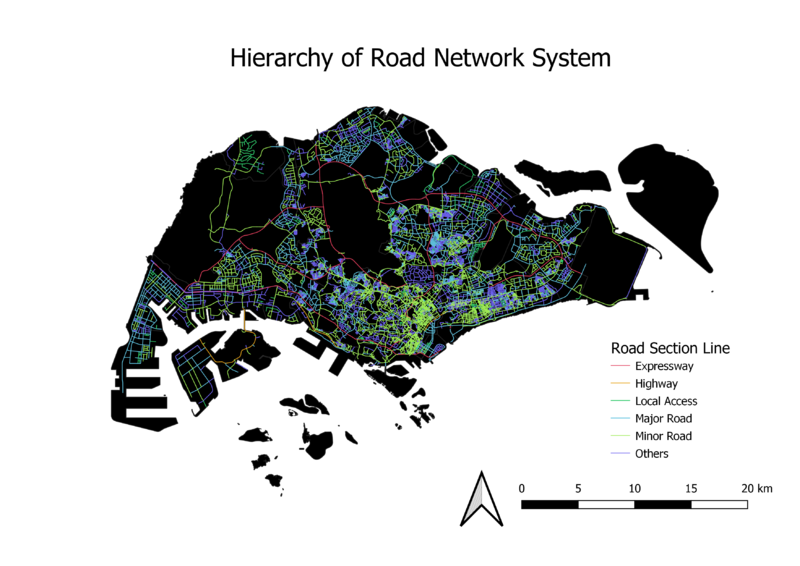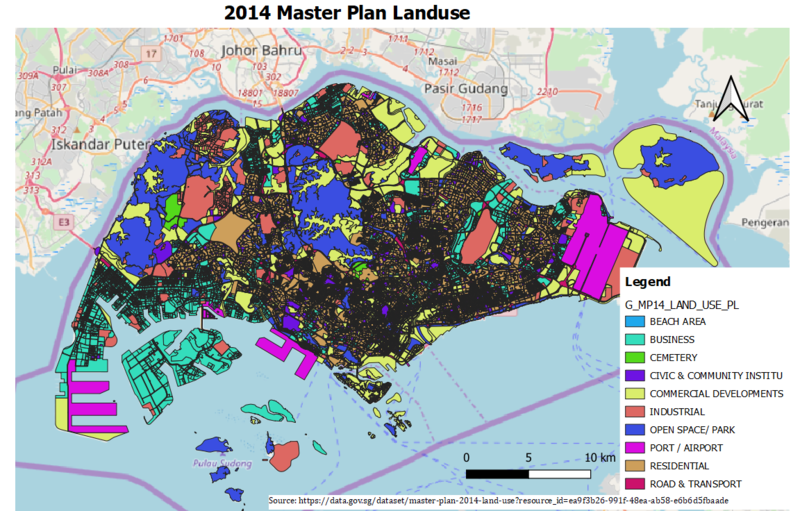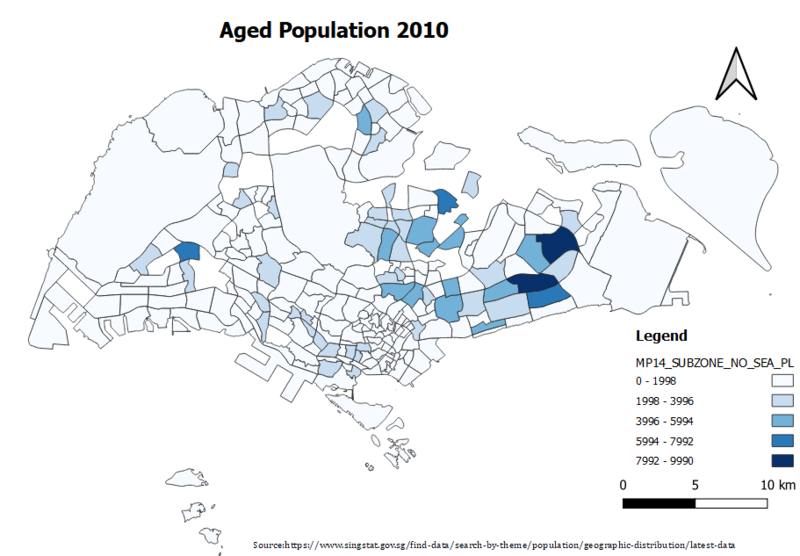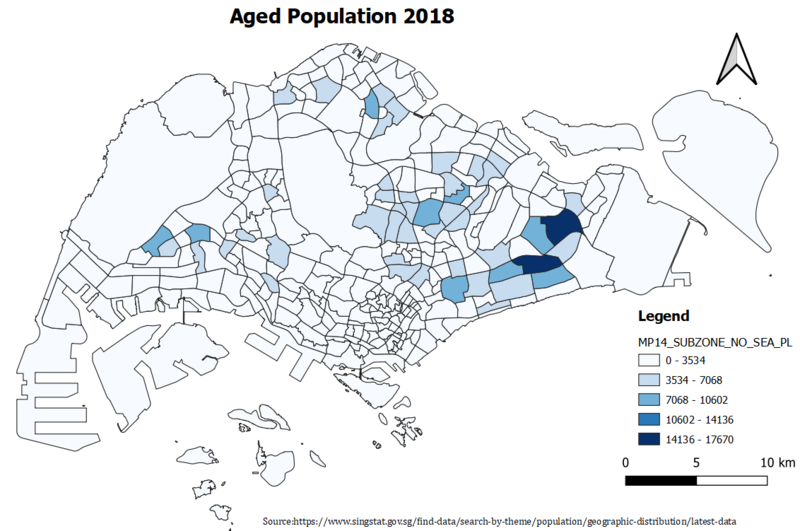Difference between revisions of "SMT201 AY2019-20T1 EX1 Zang Yu"
Yu.zang.2016 (talk | contribs) |
Yu.zang.2016 (talk | contribs) |
||
| Line 17: | Line 17: | ||
=== Aged population (+65) in 2010 === | === Aged population (+65) in 2010 === | ||
| + | <br> | ||
| + | [[File:Aged population 2010.png|800px|center]] <br> | ||
=== Aged population (+65) in 2018 === | === Aged population (+65) in 2018 === | ||
Revision as of 15:59, 15 September 2019
Part 1: Thematic Mapping
Distribution of public education institution by school types
Since the nature of the data is discrete, I have categorised the school layer into 4 categories based on the school types and symbolise them using different svg symbols. I used MP14 planning area layer as the background reference map to show the distribution of public education institutions across Singapore.
Road network system of Singapore
Based on the data from road section layer we could not distinguish the major roads and minor roads. Therefore, I joined road section layer with national map line layer as information about expressways and major roads can be retrieve from the national map line layer. The rest of the roads I assumed they are minor roads. After categorised the road network into different types of road, I used lines with different colours and thickness to represent them.
2014 Master Plan Landuse
In the original data, there are too many types of uses for land which made the map difficult for visualisation. Therefore, I reduce the number of categorises by merging lands with similar function together. For example, I have grouped Educational Institution, Place of Worship and Civic & Community Institution all under one category Civic & Community Institution. I used different colours to represent different types of landuse.
Part 2: Choropleth Mapping
Aged population (+65) in 2010
Aged population (+65) in 2018




